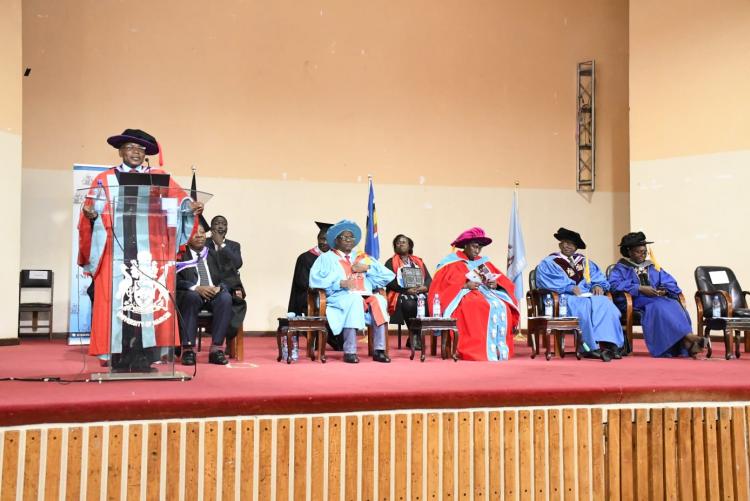On March 29th, the University of Nairobi marked a significant milestone by hosting the 51st inaugural lecture of Prof. Peter Anyanga O. Wasamba, at Taifa Hall, who was recently elevated to full professorship. In this lecture, he shared his groundbreaking research on We Are Not Mentally Ill: Deconstructing the ‘Mad Genius’ Trope in Literature, exploring literature's role in shaping societal values, beliefs, and intellectual discourse.
Prof. Wasamba highlighted how literature functions as a social tool that provokes critical thought. He emphasized the misinterpretation of literary works, citing a student's misunderstanding of Things Fall Apart as an example that reinforces the need for deeper analysis. He also examined how writers such as Achebe, Trotsky, Gorky, and Shakespeare viewed literature as a medium for education, social change, and humanistic exploration. Additionally, he discussed how African literature extends beyond decolonization, serving as entertainment, an escape, and a way to foster empathy and understanding. He further argued that literature acts as a force of hope and resistance in oppressive conditions, prompting engagement with new perspectives.
Vice Chancellor Prof. Margaret Hutchinson celebrated Prof. Wasamba’s dedication and contributions to academic excellence. She emphasized that his work has challenged misconceptions about creativity and mental health while illuminating literature’s power to transform society by questioning stereotypes, reshaping narratives, and fostering a more inclusive understanding of genius. Similarly, Prof. Ayubu Gitau, Deputy Vice Chancellor of Academic Affairs, highlighted the importance of inaugural lectures in providing a platform for professors to share their research and insights with both the academic community and the public.
Tracing the “mad genius” trope to philosophy, Prof. Wasamba explored how literature and philosophy complement each other in addressing fundamental questions of existence, knowledge, beauty, values, and human nature. He cited how Plato, in Republic, linked poetic excellence to madness, asserting that “The poet in the throes of creation is mad” (Plato, quoted in Kessel, 1989). Plato expressed concern over tragic plays by Greek tragedians such as Sophocles, Euripides, and Aeschylus, whose works evoked strong emotions of fear and pity, leading even kings to tears. An example is Sophocles' King Oedipus, where Oedipus fulfills the oracle’s prophecy despite his efforts to avoid it, resulting in severe punishment by the gods. This, Plato argued, reinforced the notion that poets manipulate audiences through turbulent emotions, imitation, falsehoods, and moral corruption.
Ultimately, Prof. Wasamba’s lecture underscored literature’s power to challenge assumptions, question societal norms, and redefine cultural narratives, particularly concerning mental health and the portrayal of genius in creative expression.
Watch the lecture live:

